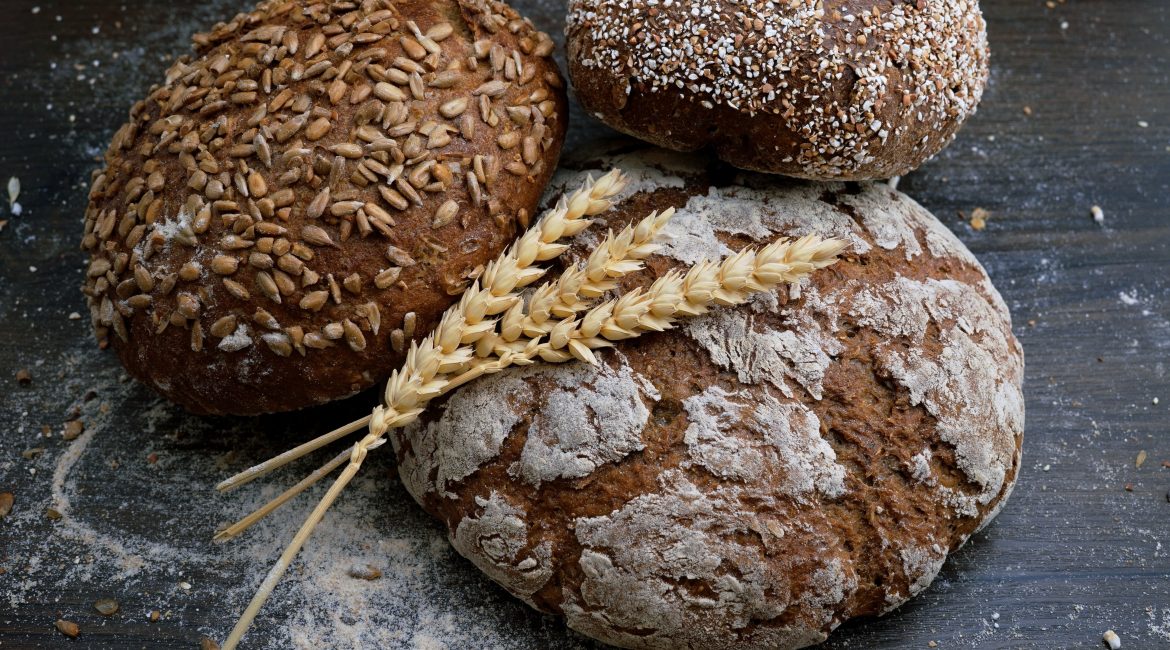Many articles are written about gluten and the benefits of going gluten-free but is gluten really that bad for most people or just those who are gluten intolerant or have celiac disease. In fact, companies have taken advantage of the negative press gluten has received by advertising products are gluten-free, including products that are naturally that way, like fruits, vegetables, eggs and even bottled water! The answer to whether you’ll benefit from a gluten-free diet, if you don’t have a problem with gluten, remains highly debated.
There’s a link between giving up gluten and weight loss, but it may not be the gluten that’s responsible.
Gluten is normally found in foods that are also higher in calories, like bread and baked goods. When you give up gluten, you often replace that gap in your diet with healthier foods that are lower in calories, such as fruit and vegetables. Food that contain gluten are often highly processed and contain higher amounts of sugar and carbs. Giving up those foods automatically can cause weight loss. Most people that are gluten intolerant lose weight, but not all of them. Some gain weight, due to the fact gluten creates a specific type of digestive issue that can cause it.
Not everyone is gluten intolerant, but it’s prevalence is growing.
While there are far more cases of gluten intolerance since 1960, one of the reasons may be that it’s more recognized today. Gluten intolerance wasn’t known in the 1950s and once there was a connection to gluten and the mystery symptoms, the number went from zero and grew significantly. Another reason may be the type of wheat that’s now prevalent. In the 1960s a wheat that’s high in gluten was hybridized and is now 80% of the wheat produced for consumption.
Not everyone should be on a gluten free diet.
If you aren’t sensitive to gluten or have celiac disease, gluten-free options may not be the best for your diet. It involves more expense, in many cases, a lot of planning and label checking and may even have negative health consequences. Just like food that has reduced fat or is non-fat, when they remove something or make a change, it often involves adding something else to make the product palatable. In the case of fat, that something is sugar. For gluten-free products, the alterations can range from adding more salt or saturated fat to adding more sugar. Those changes can give the texture, flavor or overall satisfaction that the gluten provided.
- If you’re diabetic, you might want to give up gluten. Studies show that one in a hundred people in the general population have celiac disease, but that rises to one in ten for diabetics.
- You don’t have to pay a lot for gluten-free products, some grains are gluten-free, such as quinoa, oats, sorghum, brown rice and corn.
- Many gluten-free foods are not only gluten free, but also lower in fiber, magnesium and folic acid. These are all important for maintaining good health, weight loss and keeping blood sugar levels stable.
- One study that was published in 2017 found that people who consumed a gluten-free diet, but didn’t have celiac disease or gluten intolerance, increased their risk of heart disease. It was due to their consumption of fewer whole grains.
For more information, contact us today at Targeted Nutrition Technologies

